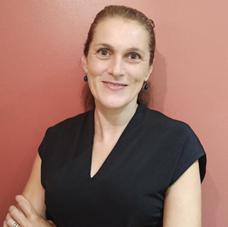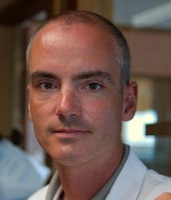The ESPR Brain, Development and Imaging Section
Welcome to the Brain, Development and Imaging Section of the European Society for Paediatric Research (ESPR)
The Brain, Development and Imaging Section consists of like minded individuals interested in the study of early brain injury and long term consequences. Their work looks at improving prediction, detection and prevention of injury to the developing brain and includes a strong focus on imaging and electrophysiology of the developing brain. we strive for better ways to prevent, predict, detect, and treat early brain injury.
-
Our objectives
The section aims to improve outcomes for all infants, children and the adults that they will become. We have a strong focus on the study of early brain injury, particularly injury to the preterm and term brain. We have expertise in early brain injury, neonatal neuroprotection, brain imaging techniques and outcome assessment. Our work spans from pre-clinical experimental work through observation studies, cohort studies and onwards to translate these findings into clinical trials and implementation of evidence based medicine to the care and protection of the developing brain.
-
Meet the Section Council
 Deirdre Murray
Deirdre Murray
Consultant Paediatrician, Prof of Paediatrics, MD, PhDSection Chair since 2019Cork University Hospital
University College Cork, Ireland
Principal Investigator and Lead for Paediatric Research
INFANT centre, UCC (www.infantcentre.ie)
Kasper Jacobsen Kyng
Consultant, Associate professor, MD, PhD
Section Council member since 2019
Neonatal Intensive Care Unit
Aarhus University Hospital
Denmark
Olivier Baud
Neonatologist, Professor, MD, PhD
Section Council member since 2024
Hôpitaux Universitaires de Genève
Switzerland
Ana Alarcon Allen
Neonatologist, Ass. Professor, MD
Section Council member since 2019
Neonatology Department, Hospital Sant Joan de Déu
Inst. de Recerca Sant Joan de Déu
Universitat de Barcelona
Barcelona, Spain
Ivo Bendix
Researcher, Professor, PhD
Section Council member since 2019
Dpt. of Pediatrics I/ Neonatology &
Experimental perinatal Neurosciences
University Hospital Essen,
University Duisburg-Essen
Essen, Germany
Jeroen Dudink
Neonatologist, Assoc. Professor
Section Council member since 2019
Neonatology Department, University Medical Center Utrecht
Chair Early Childhood, University of Utrecht
PI Sleep Discovery Lab UMCU
The Netherlands
Ted Carl Kejlberg Andelius
Paediatric Registrar, MD, PhD
Young Section Council member since 2019
Department of Paediatrics
Aarhus University Hospital
Denmark -
Current & future activities/projects
- Magnetic Resonance Imaging and Spectroscopy in Neonatology - State-of the-art series for Paediatric Research
- Editorial on the definition of neonatal encephalopathy and hypoxic ischaemic encephalopathy for Pediatric Research: opinion statement. In collaboration with the members of the Newborn Brain Society.
- Online cerebral basic ultrasound course
-
Upcoming meetings of the section
tba.
-
Publications
List of publications in Pediatric Research by the EurUS.Brain Group:
- Cranial ultrasound by neonatologists (To view the paper, click here)
- State-of-the-art neonatal cerebral ultrasound: technique and reporting (To view the paper, click here)
- Cranial ultrasound findings in preterm germinal matrix haemorrhage, sequelae and outcome (To view the paper, click here)
- Ultrasound of acquired posterior fossa abnormalities in the newborn (To view the paper, click here)
- Preterm white matter injury: ultrasound diagnosis and classification (To view the paper, click here)
- Diagnostic and predictive value of Doppler ultrasound for evaluation of the brain circulation in preterm infants: a systematic review (To view the paper, click here)
- The development and validation of a cerebral ultrasound scoring system for infants with hypoxic-ischaemic encephalopathy (To view the paper, click here)
- Results of the SafeBoosC-III trial have now been published and can be accessed here. This was a randomized, phase 3 trial of cerebral oximetry monitoring conducted at 70 sites in 17 countries, extremely preterm infants (gestational age, <28 weeks), were assigned within 6 hours after birth, to receive treatment guided by cerebral oximetry monitoring for the first 72 hours after birth or to receive usual care. A video summary of the trial can also be found here.
-
How to engage with us
Please contact the ESPR Secretariat via office@espr.eu. We will be more than happy to forward your request to the members of the Brain, Development and Imaging Section.







